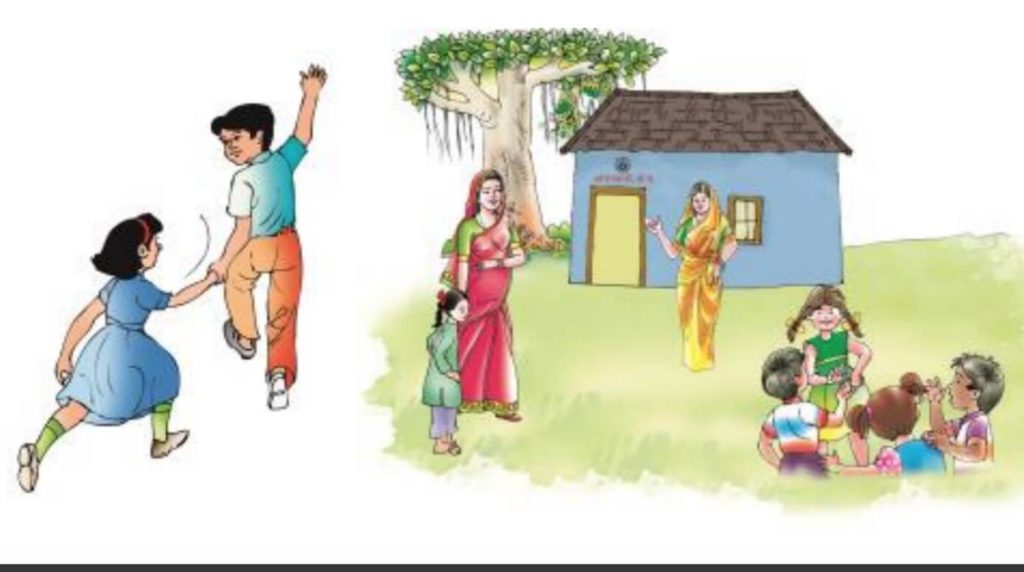What are the Quality Standards in place for Play Schools & Pre-Schools?

[orc]There has been a proliferation of Play Schools & Pre-Schools in the recent times. But what are the guidelines & quality standards in place for such entities? Here is a look at the quality standards laid down in the ECCE policy.
The government’s Integrated Child Development Services (ICDS) Scheme or more commonly known as the Anganwadi scheme is probably the largest such program in the world. The scheme’s primary beneficiaries are children in the 0-6 age group (158 million as per 2011 Census). The scheme offers six services and ‘Pre-school Education’ is one of the six services extended under this scheme. In the recent times, there has been a proliferation of private play schools and pre-schools. To lay down certain norms & standards for such entities, the government had notified the ‘ National Early Childhood Care & Education (ECCE) Policy’ in 2013. Among other things, the policy lays down certain non-negotiable quality standards to be followed by all such service providers.
The Non-Negotiable Quality Standards for Play Schools & Pre-Schools
At the minimum, all ECCE service providers have to comply with the following non-negotiable indicators
- An ECCE programme should be of 4 hours’ duration with snack/break time of 30 minutes
- For every group of 30 children, there should be one classroom measuring at least 35 square meters & availability of adequate (at least 30 square meters) outdoor playing area
- Presence of adequately trained staff
- Use of age and developmentally appropriate, child centric curriculum transacted in the mother tongue/local vernacular
- Availability of adequate developmentally appropriate toys and learning materials
- The building should be structurally safe and within easy approach. It should be clean & should have surrounding green area
- Provision for adequate and safe drinking water
- Provision for adequate and separate child-friendly toilets and hand wash facilities for girls and boys
- Provision of separate space for cooking nutritionally balanced meals and nap time for children
- Availability of immediate health service in terms of First Aid/ Medical Kit at the centre
- Ratio of 1:20 for adult caregiver/child for 3-6 year old children and 1:10 for under 3 children. Children should not be left unattended at any given point of time
Quality Standards & Framework
The guidelines also specify the following eight Quality Standards.
| Standard | Parameters |
|---|---|
| Interaction | Caregiver/ ECCE Teacher-child interaction |
| Child - Child interaction | |
| Child – environment interaction | |
| Staff- family/ parent interaction | |
| Intra staff interaction | |
| Health, Nutrition, Personal Care and Routine | Health (check-up, first aid, immunization, handling illness) |
| Nutrition | |
| Hygiene | |
| Habit formation | |
| Protective Care and Safety | Adult supervision |
| Socio/Emotional protection | |
| Physical safety | |
| Infrastructure/ Physical Environment | Space, building, outdoors |
| Aesthetics , cleanliness, green area | |
| Safety and approach | |
| Water facility | |
| Toilet facility | |
| Organization and Management | Program |
| Philosophy and methods | |
| Documentation and records | |
| Program planning | |
| Parent involvement | |
| Financial management (fee, salary, fund allocation) | |
| Staffing(adequacy, professional qualifications, professional development) | |
| Children experiences and learning opportunities | Provide opportunities for exploration, experimentation |
| Encourage child to make choices and participate in play | |
| Foster child’s language and literacy abilities | |
| Develop problem solving and mathematical abilities | |
| Promote each child’s physical abilities | |
| Nurture development and maintenance of relationships | |
| Cultivate enjoyment of and participation in expressive art | |
| Assessment and outcome measures | Assessment methods |
| Assessment reporting | |
| Facilitating development through assessment | |
| Staff assessment and Development | |
| Program assessment | |
| Managing to support quality System | Caregiver/ ECCE Teacher education and on site professional development |
| Monitoring and supportive supervision | |
| Research |
The National ECCE Council and corresponding Councils at State level are supposed to act as the regulatory & monitoring bodies in charge of periodic review, co-ordination with other departments and creating public awareness among other things .
The government has also released the ECCE curriculum framework to be followed by all ECCE service providers. ECCE training module for Anganwadi workers has also been released recently. An e-learning module has also been developed. These modules can be accessed from the website of National Institute of Public Cooperation and Child Development.
Action Point: If you come across any Play School or Pre-School not conforming to the relevant standards, write to the Women & Child Development department of the State Government or file a grievance on the CPGRAMS portal with the Ministry of Women & Child Development of Government of India.